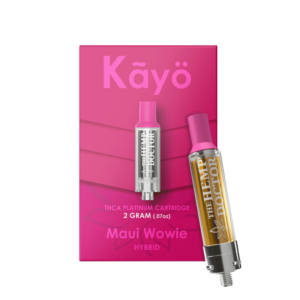In recent years, dispensaries have become a common sight in many states across the U.S. While these provide easy access to a variety of cannabis products, visitors often encounter an unexpected hitch – the need to pay in cash. Ever wondered why this is the case? Let’s explore the reasons behind “some” dispensaries being predominantly cash-based.
Navigating Federal and State Laws
Despite being legal in many states, marijuana remains illegal on a federal level. This discrepancy creates a complex legal environment that impacts dispensaries’ operations, especially in financial transactions.
The federal classification of marijuana as a Schedule I drug obstructs dispensaries’ ability to access traditional banking services. Banks adhere to federal regulations, and federal prosecution is a risk when dealing with cannabis-related funds. This legal tension discourages banks from engaging with these businesses, thus explaining why dispensaries function primarily with cash.
Dispensaries, then, need to navigate a legal maze where state legality clashes with federal policy.
Understanding the intricacies of the Controlled Substances Act reveals why dispensaries must resort to being cash-based. With cannabis classified alongside heroin and LSD, federal restrictions prevent dispensary access to financial services provided to other businesses. This federal-state conflict places dispensaries in a precarious position, balancing compliance with state laws while avoiding federal penalties.
The SAFE Banking Act attempts to ease this challenge by allowing banks to service legitimate cannabis businesses without risking federal reprisal, although it has struggled to gain full legislative approval.
The Role of Banks and Financial Institutions
Most banks are wary of working with dispensaries due to the federal classification of marijuana. They risk severe penalties, prompting many to decline services, leaving dispensaries to rely on cash. This issue is not simply about market access but navigating an environment where federal rules overshadow state laws.
Financial institutions remain cautious, considering the implications of aiding a business under federal scrutiny. For example, the Financial Crimes Enforcement Network (FinCEN) mandates regulatory compliance that intimidates banks from engaging with dispensaries, fearing repercussions under the Bank Secrecy Act.
With traditional banking largely out of reach, some dispensaries have turned to smaller financial entities and credit unions more willing to accept the risk. These organizations, however, require dispensaries to adhere to rigorous compliance parameters set by FinCEN and the Bank Secrecy Act requirements, burdening them with additional operational complexities.
Meanwhile, legislators push bills like the SAFE Banking Act to provide cannabis businesses with more banking options, a measure aimed at alleviating the reluctance of financial institutions to interact with the cannabis industry through offers of legal protection.
Security Concerns and Cash Dependency
Managing large amounts of cash can pose security risks. Dispensaries must invest in robust security measures to protect themselves and their assets, a task complicated by their cash dependency.
The absence of traditional banking services compels dispensaries to hold significant cash on-site, increasing the potential for theft and making them attractive targets for criminals. This reliance on cash mandates tight security protocols that include safes, surveillance systems, and security personnel, which can be costly.
Furthermore, the inability to use digital transactions complicates bookkeeping and financial management, adding another layer of challenge. The cash-only model also hinders customer convenience, posing challenges for those accustomed to cashless transactions.
To counteract these difficulties, some dispensaries have installed in-store ATMs, which allow customers to access funds directly on-site, albeit with service fees. Despite offering a stop-gap solution, these ATMs still uphold the dependency on a cash-based system, contributing to operational inefficiencies and further compelling security investments.
These precautions underscore the urgency for alternative payment models that ensure financial safety while adhering to federal constraints.
Alternative Payment Solutions: Are They Viable?
Some dispensaries are exploring alternatives like cryptocurrencies and private payment apps. However, these solutions come with their challenges and aren’t widely adopted yet.
Cryptocurrencies present a unique opportunity by circumventing traditional banking systems; however, their volatility and regulatory ambiguities present substantial hurdles. Moreover, these digital currencies demand technical literacy that may deter businesses and customers.
Private payment applications, while promising, trail behind due to federal limitations and a lack of integration with mainstream financial tools.
The Future of Cannabis Transactions
As legislation around cannabis evolves, so might the financial services available to dispensaries. A shift in federal law could open doors to traditional banking, significantly impacting how dispensaries do business.
The ongoing discussions and support for acts like the SAFER Banking Act are paving the way for future changes. This Act, having recently passed in the Senate, signifies potential progress toward allowing banks to engage with cannabis businesses freely without legal repercussions. Until such reforms materialize, alternative methods for cash management remain crucial in sustaining dispensaries’ operations and fostering safe business growth in a regulated market.
Federal rescheduling of cannabis or outright legalization could revolutionize the cannabis industry’s relationship with banking. Such changes would enable dispensaries access to comprehensive banking services and streamline their financial management processes, reducing the dependence on cash transactions.
Shop with Ease: The Hemp Doctor’s NC Stores Accept Multiple Payment Options!
As a hemp retailer (not considered a dispensary), The Hemp Doctor’s North Carolina retail locations in Mooresville, Concord, and Huntersville offer multiple secure payment methods not limited to cash. Customers can easily pay using credit cards, debit cards, Apple Pay, and Google Pay. Stop by today and shop worry-free at The Hemp Doctor’s NC locations!







